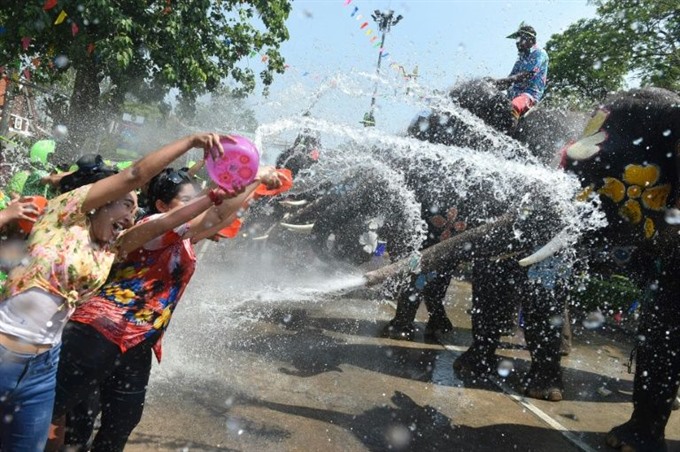 Life & Style
Life & Style

Elephants used their trunks to shower floral-clad Thais with water on Wednesday in a street fight celebrating the kingdom's traditional new year, a raucous festival known as Songkran that will bring revellers out for a nationwide water battle this week.
 |
| Elephants versus humans in a giant Thai waterfight. — AFP Photo |
AYUTTHAYA — Elephants used their trunks to shower floral-clad Thais with water on Wednesday in a street fight celebrating the kingdom’s traditional new year, a raucous festival known as Songkran that will bring revellers out for a nationwide water battle this week.
The animals, whose wrinkled hides were decorated with paint, splashed and sprayed in the streets of Thailand’s former capital Ayutthaya, a tourist hotspot famed for its ancient temple ruins.
A mix of Thais and foreigners armed with water guns and buckets fired back at the elephants, who were controlled by handlers — known as mahouts — riding on their backs.
"Today our children (elephants) are having fun and the foreigners who come to Ayutthaya are happy to inherit the Thai tradition," Tawan Sudso, an organiser of the annual event, said.
The Buddhist new year festival officially starts on April 13 and runs for three days.
Traditional celebrations include paying respect to elders and sprinkling water over Buddha figures at local temples, a ritual believed to accrue good karma.
But the holiday has also become known as one of the world’s biggest water fights, drawing massive crowds of Thais and tourists to soggy street parties that bring much of the country to a standstill.
Police expect some 60,000 partiers to cram into just one Bangkok neighbourhood for the watery warfare later this week.
Under military rule, Bangkok’s Songkran water fights have become less raucous in recent years with alcohol sales restricted and regular appeals from authorities to avoid provocative dancing.
Similar but smaller water festivals are also held in neighbouring Buddhist countries like Myanmar and Laos. — AFP




